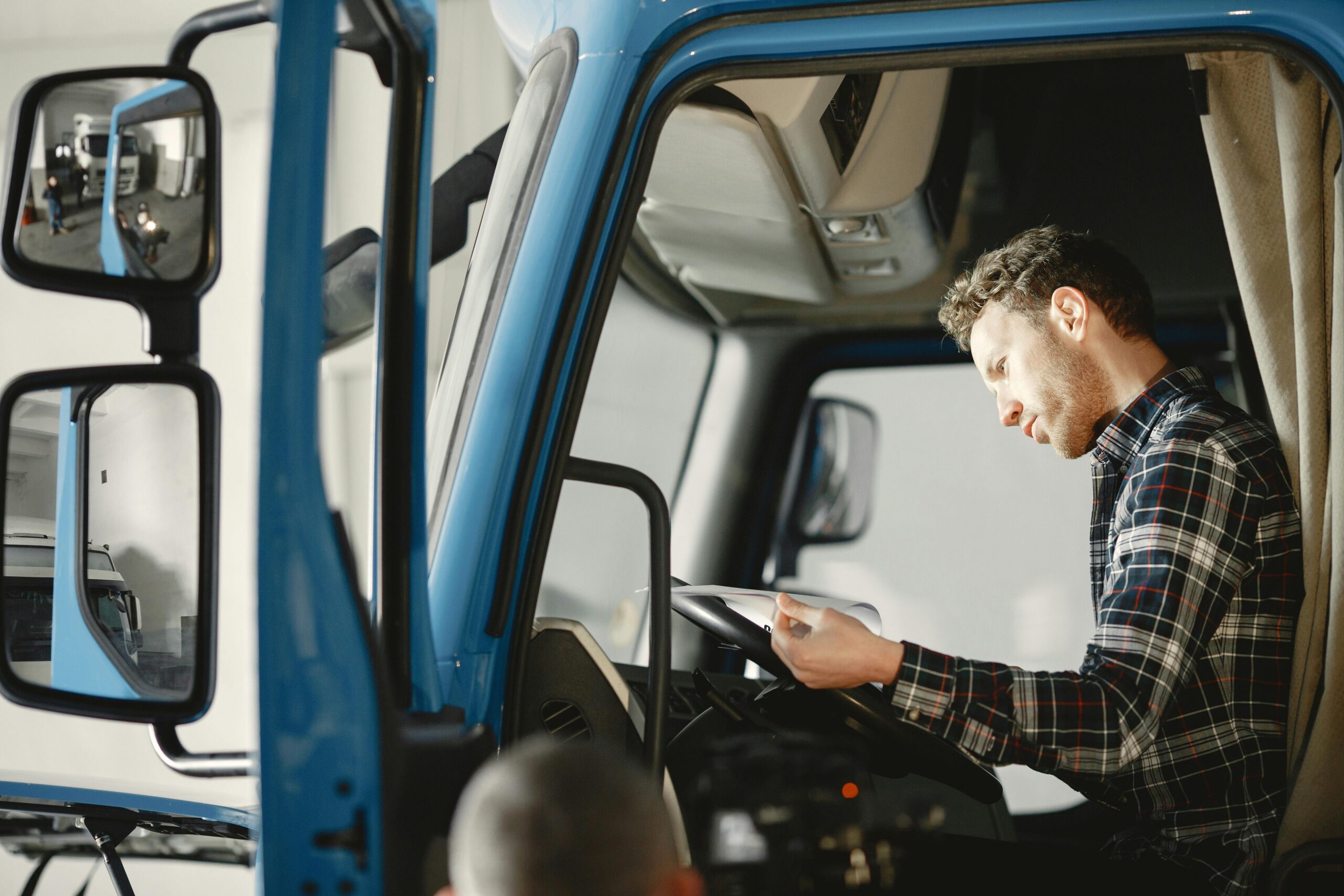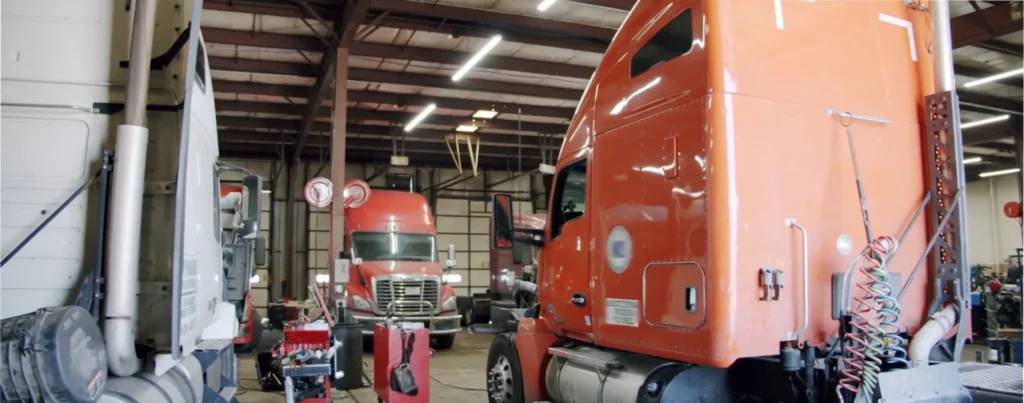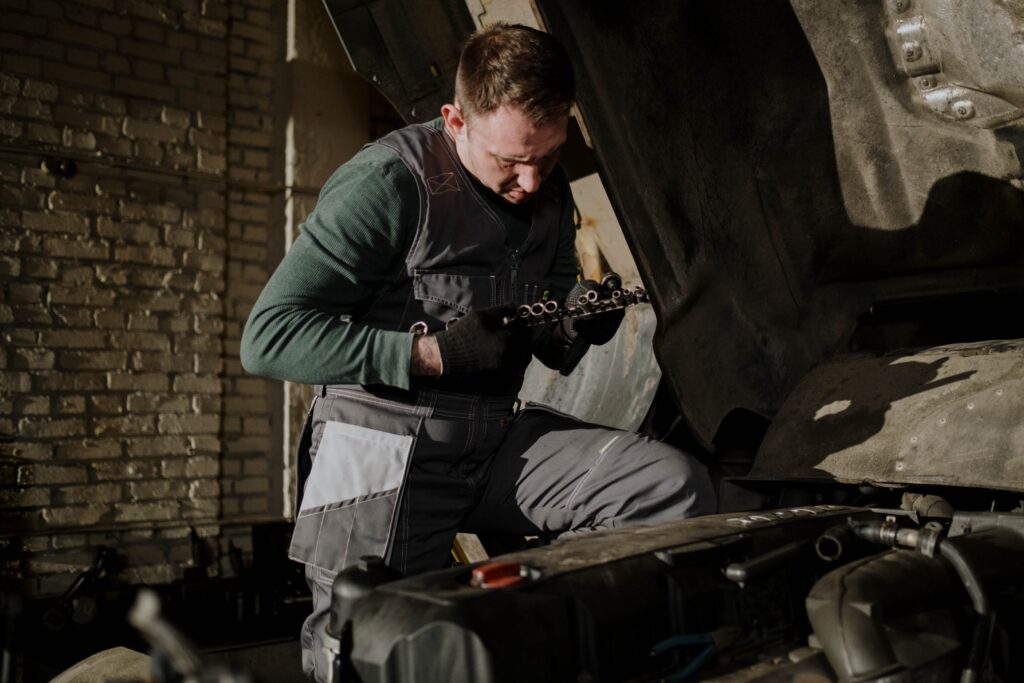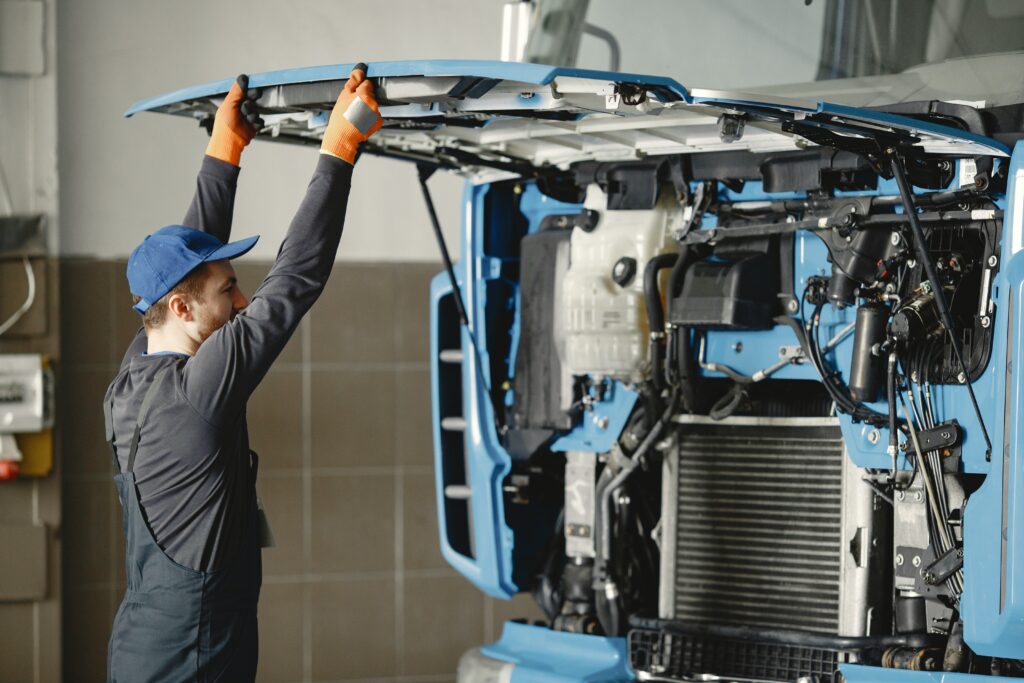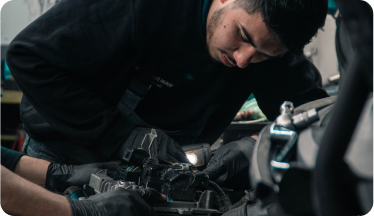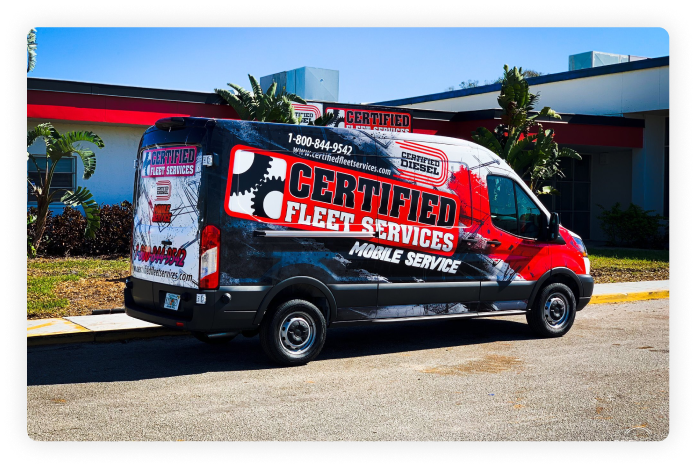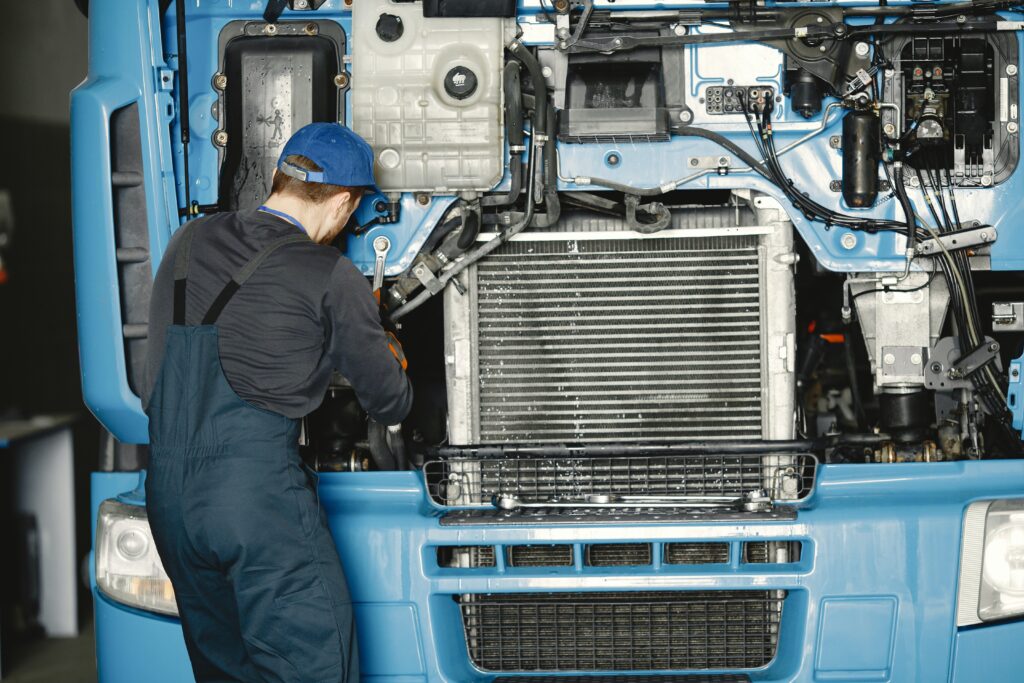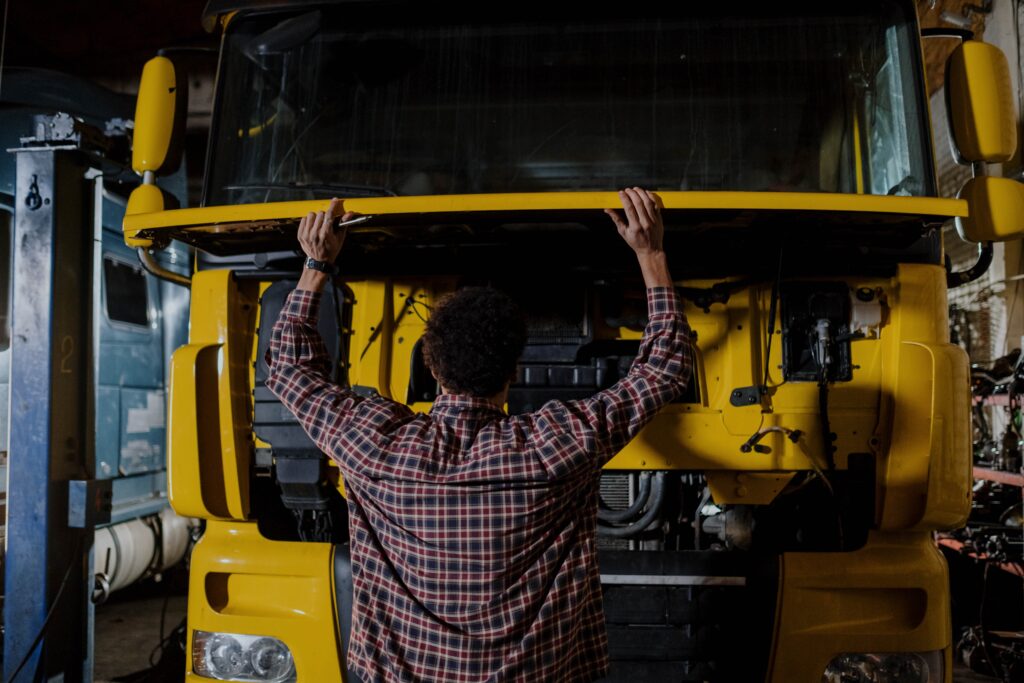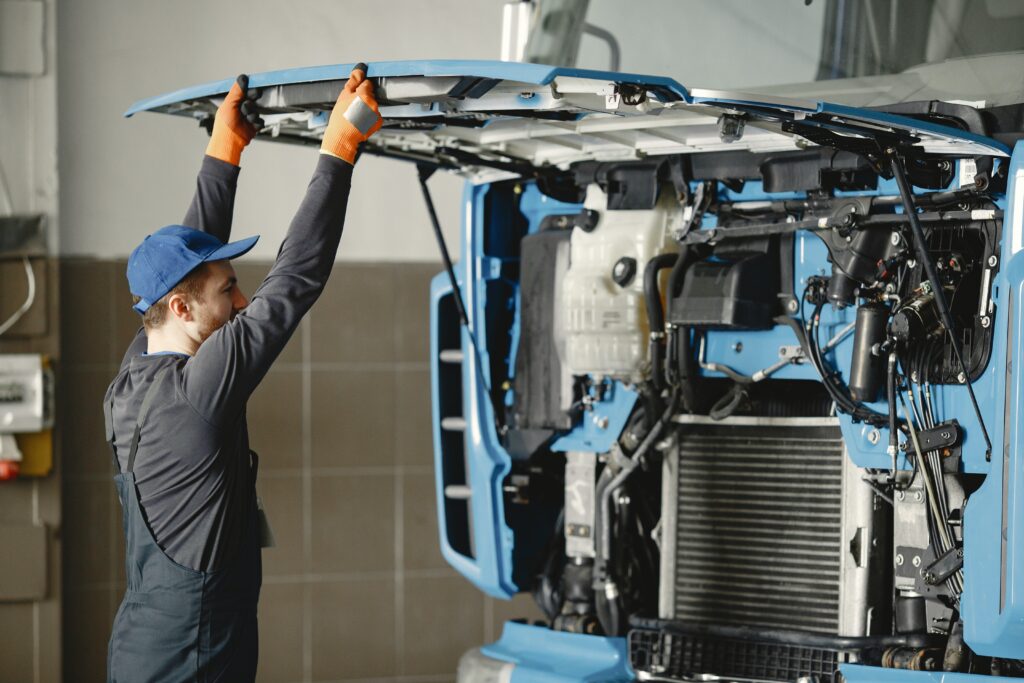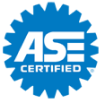Your truck brakes are responding a little weird. I’ll get around to truck brake repairs eventually, you might think to yourself.
Not so fast.
While you might be tempted to hold off on completing a brake repair on your truck for a day when you have more time, lapsing on repairing your truck’s brakes could be a matter of life and death (literally).
The last thing you need on your hands is an accident that harms you, pedestrians, and your precious cargo.
On the contrary, when your brakes are in tip-top shape, you can take on the world. We know what that feeling is like.
That’s because for more than two decades, we’ve worked with truckers, truck drivers, and fleet operators to ensure their first line of defense — their truck brakes — are responsive and in peak condition.
If you’re wondering whether you need new brakes, you’ve come to the right place.
Let’s dive into the specifics of six key indicators and warning signs that your truck needs new brakes.
In this article, we’ll discuss the 6 indicators that you might need new truck brakes, in addition to the following:
- How a truck’s brake system works
- The technical role that brake drums and shoes play in truck brake repairs
- Important safety precautions to take when replacing truck brakes
- The importance of a slack adjuster in the brake repair process
- A few facts about truck brake repairs
- The importance of choosing a reliable and experienced diesel truck repair technician for repairs
6 warning signs that you might need new brakes
|
1. Brake warning lights
First on our list is brake warning lights. You’ll want to get the brakes checked on your truck if you notice the red brake warning light turn on.
You might be hesitant to wait if you notice brake warning lights turn on. With that being said, disregarding making changes to your brakes could cause more problems in the long run.
As such, bring your vehicle to a nearby truck repair shop. They’ll conduct a quick checkup and determine the root cause of the issue.
2. You hear squealing sounds
Squealing noises: if you notice either of these when using the brakes, something’s up with your brake system. Squealing noises generally mean that your brake pads are malfunctioning and that they will likely need to be replaced.
We can’t emphasize enough the importance of changing your brakes as soon as possible. If you dilly-dally on repairs, you could risk damaging rotors and need to shell out money for more costly repairs.
3. Vibrations coming from the brakes
While you’re braking, if you notice vibrations, you might have warped rotors on your hands. Rotors are the super-large discs located behind your wheel.
When you come to a stop when you use the brakes, the brake pads apply pressure to the rotors.
With warped rotors, your braking system won’t work as it should, and you’ll feel vibrations when coming to a stop. The simple solution is to bring your truck to a diesel repair shop for a thorough, multi-pronged inspection.
Your diesel repair team will help repair the rotors so you can get back on the road and haul again.
4. Fluid leaks
Fluid leaks come in all different colors and odors. You might notice leaking brake fluid in heavy-duty trucks due to the following reasons:
- Worn or damaged brake hoses: Can lead to leaks.
- Loose fittings and connections: Wear and tear or improper installation can cause a loose fitting or connection to leak brake fluid.
- Corrosion: Older vehicles, or vehicles operating in conditions with heavy precipitation, can develop corrosion.
- Failed seals: A failed seal can cause brake fluid leaks.
- Malfunctioning and faulty brake components: when brake parts — such as brake master cylinders, brake calipers, or brake pads — aren’t working, leaks can occur.
If you’re concerned that fluid leaks have occurred, you should bring in your truck for brake repair and maintenance service. Bringing in your truck right away will help you ensure a complete brake failure doesn’t occur.
5. Burning smells
Uh-oh, smell something burning coming from your wheels and brakes? You should stop driving as soon as possible to avoid brake failures.
Pull over and check on your brakes as soon as you can. If you see smoke or smell any odors coming from the brakes or wheels, call your local diesel repair shop for mobile or in-shop repair service.
6. The vehicle is pulling to one side
Another sign that your brakes need repair work could be if your vehicle tends to pull to one side when braking. Most of the time, if you notice your vehicle pulling to one side, the pulling is a result of a malfunctioning brake caliper.
Also, if your vehicle pulls only when you apply the brakes — or if your vehicle responds in a different way while on flat surfaces like parking lots — you might also be encountering brake issues.
So, what can you do to ensure your truck’s brakes work and avoid unsafe brake situations? Better-working brakes start with knowledge about the anatomy of your brakes.
The anatomy of your heavy-duty truck brake system
So, how exactly does your truck’s brake system work? A truck’s brakes start with the air compressor, the heart of the brake system.
An air compressor pumps air into the air dryer, which removes moisture and other contaminants from the brake system. Then, the air travels to the service chamber.
When you depress the brake pedal, the service chamber activates the push rod, which moves to the slack adjuster. The slack adjuster then rotates the S-cam and pushes the brake shoes against the brake drum.
The friction between the brake shoes and the drum brings your heavy-duty truck to a full stop. Finally, the return springs pull the brake shoes back to their original position, ready for the process to begin again when braking occurs again.
Now that we know a bit more about the big picture of braking systems, let’s jump into the finer, more technical details.
A step-by-step guide to replacing brake drums and shoes
So, now that we understand how brakes work, let’s dive into replacing brake drums and shoes. Heavy-duty truck brake drums and shoes are key in supporting a strong, functional brake system.
The below step-by-step guide covers how to replace them:
- Step 1: Ensure safety first: Ensure your truck is on a stable, level surface. You can use wheel chocks to secure the truck so it doesn’t roll.
- Step 2: Lift the truck: Use a heavy-duty lift that will support your truck’s weight. Lift the axle, and keep the other wheels grounded for added safety.
- Step 3: Remove the wheel: Take off the lug nuts, and remove the wheel to expose the brake.
- Step 4: Take a look at the brake drum: Check the brake drum for wear and tear. If needed, replace the brake drum.
- Step 5: Replace the brake shoes: Take off the return springs, and remove old brake shoes. Then, install the new brake shoes, and reattach the springs.
- Step 6: Adjust the slack adjuster: The slack adjuster plays a huge role in ensuring optimal braking. Use a wrench to adjust the slack adjuster so that brake shoes are close but not touching the brake drum.
- Step 7: Reinstall the wheel, and lower the truck: place the wheel on the truck, tighten the lug nuts, and use the lift to lower the truck. Also, remove the wheel chocks, start the engine, and test the brakes before taking the truck for a long haul.
Note: Before fixing your vehicle, make sure to follow these 11 safety driver tips. Doing so will ensure your driver comes home safe and sound.
Safety tips when completing truck brake repairs
Speaking of safety, we wanted to share a few safety tips when installing your truck brakes:
- Always use a lift that’ll accommodate your truck’s weight.
- You’ll want to use wheel chocks, as they’ll help keep your truck stationary during the entire repair and installation process.
- Finally, make sure to use personal protective equipment such as gloves and safety goggles. You’re working with heavy objects and brake fluid, which can ignite under certain conditions. Always make sure to use protective equipment to ensure a safe repair job.
The slack adjuster: brake repairs, maintenance, and calibration
While the slack adjuster may be smaller than a brake drum or brake shoe, it plays a crucial role in proper brake maintenance and repairs. The slack adjuster is a linchpin that takes the linear force from the air chamber and translates it into rotational force that helps apply the brakes.
The slack adjuster helps make your truck stop when you depress the brake pedal.
Why is ensuring the right adjustment for the slack adjuster so important? If you don’t calibrate your slack adjuster, you may need to depress the brake pedals earlier and at longer distances.
What’s more, you and your heavy-duty truck could also experience uneven brake wear, and in worst cases, brake failures. Therefore, calibrating your slack adjuster on the regular isn’t just a nicety but a necessity for safer fleet management operations.
Certified truck fact #1
Did you know that the average semi-truck travels over 100,000 miles per year? That’s equivalent to driving around the Earth four times!
Whether you’re behind the wheel or under the hood fixing brakes, there’s always something new to learn about keeping your truck in tip-top condition. Stay sharp with our weekly dose of trucking knowledge here on our Instagram page.
What’s more, you and your heavy-duty truck could also experience uneven brake wear, and in worst cases, brake failures. Therefore, calibrating your slack adjuster on the regular isn’t just a nicety but a necessity for safer fleet management operations.
Choose a dependable and experienced technician for truck brake repair service
Brake replacements and routine maintenance are essential to a heavy-duty truck’s overall longevity. As such, brakes fail if they don’t receive proper care and maintenance.
To reduce the risk of safety risks or life-threatening accidents, you’ll want to know the warning signs that indicate a faulty brake system by taking your vehicle to a dependable truck repair facility.
And with the market for brake pads and shoes expected to grow over the next decade, there’s no shortage of diesel repair shops that carry replacement brake shoes and brake pads (WiseGuyReports.com, 2024). You’ll have plenty of diesel truck repair shops available to keep your brakes properly functioning.
But, if you’re looking for smart advice about air brakes for heavy-duty trucks by experts who know trucks like the back of their hands, don’t hesitate to contact us. Our team has more than 25 years of dedicated experience servicing heavy-duty diesel trucks and fleet vehicles.
If you live in the Florida area, stop by for regular or emergency maintenance and brake repairs at our three convenient shop locations. We’ll make sure your truck brakes work as good as new.
We look forward to being of service and helping you get back on the road again!
Certified Fleet Services: Getting You Back on the Road Faster

